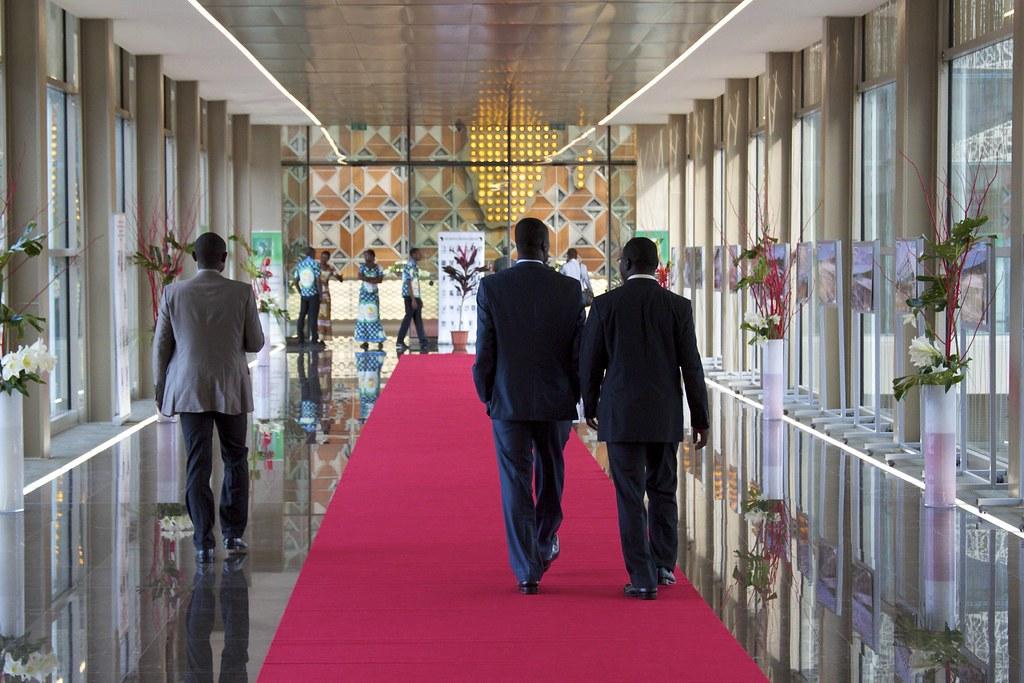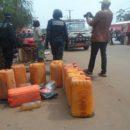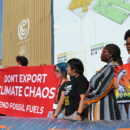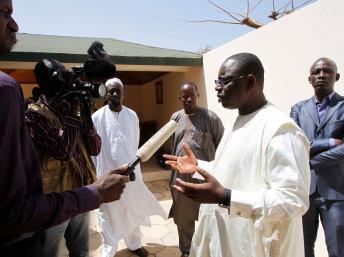When dinosaurs fall: Four ways the African Union can better intervene

In the uncertainty that follows the removal of long-standing leaders, the AU can – and should – have an important role to play.

At an AU summit. Credit: Embassy of Equatorial Guinea.
What happens when long-running autocratic leaders are finally ousted? This is the dilemma currently facing Algeria and Sudan, where protests recently led to the removal of Presidents Abdelaziz Bouteflika and Omar al-Bashir respectively. It is a conundrum that has had to be confronted in the last few years in Zimbabwe and Burkina Faso as well as in the likes of Egypt, Tunisia and Libya before them.
In all these cases, there has been huge uncertainty following the overthrow of the ageing leader. In the aftermath of such events, most of the elements of the repressive, corrupt and violent regime the dictator built remain in place. Meanwhile, the popular movements that inspire change often lack clear leaders let alone offering up a government-in-waiting.
This makes situations highly contested and unpredictable. The possible outcomes vary widely from largely peaceful transitions such as in Tunisia and Burkina Faso; to mostly cosmetic change such as in Zimbabwe or Egypt; to violent chaos as in Libya.
Given this level of internal uncertainty and how much is at stake, bodies such as the African Union (AU) and regional organisations can be particularly crucial in these moments. They can, in theory, provide guidance and stability as they help ensure the people’s legitimate demands are met. Yet since the Arab Spring in 2011, the AU has struggled to act decisively in response to revolutions and the political vacuums that have followed.
Below are four questions or recommendations for the AU in ensuring it is better prepared to act going forwards.
1) Take responsibility
To begin with, the AU should put popular uprisings on the agenda of its next summit as a matter of urgency. Unfortunately, the body missed the opportunity at its last summit to discuss this issue even as both Algeria and Sudan were inching towards tipping point.
The AU should see it as one of its political responsibilities to respond to popular overthrows on the continent and be prepared to take a leading mediating role. Among other things, this would send a message to other world powers and potentially minimise foreign interference, which can be destabilising and counterproductive in these tense moments.
2) Define its stance
In working out how to best address popular uprisings, the AU should begin by looking at its Charter on Democracy, Elections and Governance. This document, which condemns unconstitutional changes of government, has informed the Union’s response in the past such as in rejecting Laurent Gbagbo’s attempt to cling onto power in Côte d’Ivoire in 2011 or in denouncing Burkina Faso’s short-lived military coup in 2015.
In more complex situations, however, the charter has not provided the necessary clarity for focused action. In November 2018, for example, Zimbabwe’s military took power and, supported by popular protests, forced President Robert Mugabe to resign. Faced with this “coup that was not a coup”, the AU’s response was ambivalent and muted.
This is just one indication, however, of how authoritarian leaders have worked out how to get around the AU’s simplistic stance on unconstitutional change. In several countries – from Burundi to Egypt to Togo – incumbents have deliberately been careful to follow constitutional rules – at least on paper – when tightening their grip on power. Rather than riding roughshod over national regulations, they have exploited their dominance over national assemblies, electoral processes or the judiciary to change the constitution within the letter of the law.
To know how to deal with these kinds of actions and discourage them, the AU needs a stricter interpretation of its position towards dubious constitutional amendments and quasi-coups. Should it accept constitutional changes that brazenly benefit incumbents even if technically legal? How should it judge the legitimacy of different kinds of moves to oust unpopular leaders?
3) Empower mediators
The African Union already has a set of mechanisms to promote peace, security and stability on the continent under the African Peace and Security Architecture (APSA). The principle tool for diplomacy within this is the so-called “Panel of the Wise”, whose five members are tasked with supporting the AU’s Peace and Security Council and chairperson in the areas of “preventative diplomacy and mediation”.
Unfortunately, however, the Panel is currently overstretched and under-resourced. Its personnel appear to lack commitment and enthusiasm. It is time therefore for the AU to conduct a holistic review. It should re-examine issues such as the selection criteria for the panel’s members, the support its secretariat receives, its reporting procedures, and its relationship to the Peace and Security Council.
While this review is being conducted, the AU could assemble and equip a coalition of willing former heads of state to lead mediation efforts that emerge in the meantime. This approach of empowering respected retired leaders to facilitate talks has had some success elsewhere and, if provided with the necessary resources and scope to intervene promptly, could help countries in fragile situations avoid chaos.
These initiatives should be financed through the AU Peace Fund, which has received a recent uptick in contributions by member-states, rather than through ad hoc or external donor funding. This would minimise the possibility of political interference by either self-interested African leaders or foreign countries, while circumventing the AU’s unwieldy bureaucracy.
4) Tackle the elephant in the room
The elephant in the room when it comes to these conversations is the fact that the AU is only as strong as its member-states want it to be. And many African leaders may sympathise more with autocrats than with the movements that seek to remove them. Despite the recent fall of several dinosaur leaders such as Bouteflika and al-Bashir, six of the world’s ten longest-serving presidents are still in Africa, while several others around the continent have sought to extend their powers through questionable means. The AU’s current chair is President al-Sisi who just changed Egypt’s constitution to allow him to stay in power until 2030.
How the AU manages these self-serving leaders is a real dilemma. There is a significant club of rulers in Africa who are more likely to protect and emulate rather than challenge one another. In tackling this issue, however, the AU and its member-states ought to question the very purpose of its engagements and therefore how it can be effective.
Is it better to intervene early on with decisive and clear action, wait for a country to reach tipping point, or only get involved when the situation finally implodes? Also, when does an internal matter become a regional or continental issue of concern? African leaders often cite the principle of sovereignty to frustrate African or regional interventions, but allowing dictators to force the AU to drag its feet will mean it will only intervene at the latest moment when it may already be too late.






